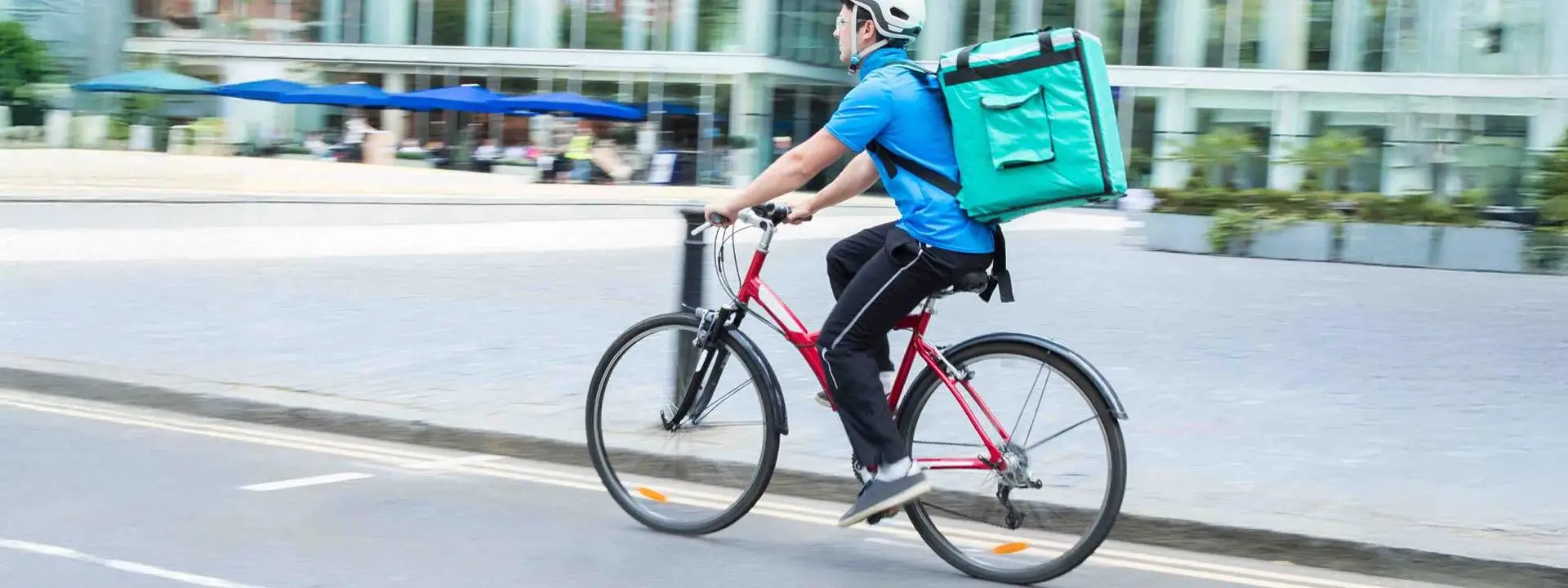Exposed and overlooked: the hidden cost of your takeaway

What is the true cost of a takeaway? Writing in The Herald, Dr Pedro Mendonca from the Centre for the Transformation of Work, explores this question in detail, highlighting the challenges and dangers faced by food delivery couriers.
In the rush to deliver hot meals to doorsteps, delivery riders risk their lives—yet their voices remain unheard. As the UK Government proposes new protections for shop workers under the Crime and Policing Bill, it begs the question: What about the thousands of food delivery riders? For too long this major workforce has been overlooked by policymakers. Now is the time to address this inequality and protect these men and women who face alarming levels of abuse, harassment, and physical danger daily.
Employers, such as Deliveroo, are now advocating for stronger protections for riders through legislation, a long-awaited development, creating a crucial opportunity for the UK government to collaborate with employers, unions, and academics to make informed, impactful decisions. This shared commitment offers a chance to address the urgent need for reform and ensure the safety and dignity of delivery workers.
But what about elsewhere in the UK? In Scotland, for example, there is still much work to be done. My colleagues and I recently delivered a presentation before a cross-party mix of politicians, union representatives and academics in the Scottish Parliament to share the findings of our new study that highlights the disturbing reality faced by food delivery workers north of the border. This revealed more than 81% of riders felt unsafe on the job while, for women, the findings were even more alarming with every respondent having experienced sexual harassment. For many, the abuse comes not just from customers but from every corner of their work environment – such as restaurants, road users and colleagues. It showed that over 90% of workers experienced verbal or psychological abuse. Racism is also rampant with 60% of riders enduring racial or ethnic abuse and more than half reported physical injuries while working. Despite these dangers, financial necessity forces many to continue in the job.
Despite these dangers, delivery platforms show little urgency to address the crisis. Over 78% of riders believe their safety is secondary to customer satisfaction. Pressured by algorithms that reward speed over safety, riders are often forced to cut corners.
While platforms reap profits, riders pay the price. Employers prioritise customer demands over worker safety, while the Government continues to turn a blind eye. Excluding delivery riders from the Crime and Policing Bill sends a chilling message: some workers deserve protection, but not all. This is a glaring failure to recognise the realities of modern work. As delivery riders become increasingly essential to our economies and contemporary societies, we all must ensure they are protected. The Government has a clear choice: continue to ignore the suffering of delivery riders or extend the Crime and Policing Bill to ensure they, too, are protected.
Policymakers, unions, academics, and platform companies must work together to ensure these workers’ safety and dignity. It’s time to stop treating delivery riders as invisible. Their safety and dignity are non-negotiable because no job—no matter how temporary or precarious—should come with a side of fear.
Dr Pedro Mendonca
See morePedro Mendonça is an Associate Professor in Work and Employment. Pedro’s key areas of specialisation are aimed at analysing futures of work with particular focus on improving job quality in digital platform work, the gig economy, and supply chains.